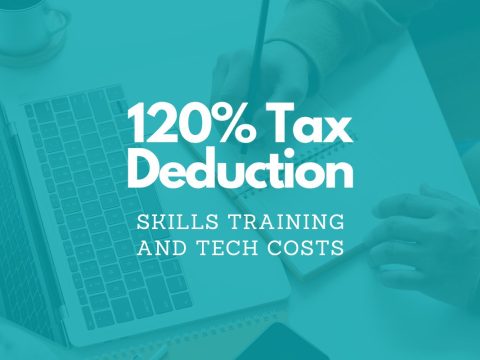Viewpoint – Spring 2012
Since our last Viewpoint it has been a largely rural feel for Allworths. Stephen Armstrong and Craig Duncan visited clients in Albury in June. In August, Stephen visited clients in Bellata and Mark Copsey attended a client’s cattle auction in Tamworth. In September, Stephen visited clients in Coonamble.
Everyone is busy with completing accounts and tax returns for the tax year just completed and also ensuring 30 June audits are completed before the 31st October deadline. With lodgements due at various dates over eleven months of the year, we will be monitoring due dates and contacting clients as necessary.
New data processing rules for Superannuation
New data and payment standards legislation for Superannuation came into effect from 1 July 2012. Small employers – those with less than 20 employees – will have to use these standards for sending contributions to superannuation funds from 1 July 2015. Large and medium-size employers must use the standard from 1 July 2014.
Under the new standard employers will be required to make all contributions and rollovers to superannuation funds in an approved electronic form (not by cheque).
The new standards are part of the Government’s Super Reform package. They are intended to provide a consistent, reliable electronic method of transacting linked data and payments for superannuation. The goal is:
- to improve the efficiency of the superannuation system
- to improve the timeliness of processing of rollovers and contributions
- reduce the number of lost accounts and unclaimed monies.
Employers will need to ensure that they upgrade their internal systems or use a payroll supplier to help meet the new standards. Other partners, including accountants and clearing houses, funds and their administrators may be able to help as well.
For small businesses with less than 20 employees, the free Small Business Superannuation Clearing House is available to help meet super guarantee obligations. Small businesses can register for the service by visiting the Department of Human Services website: www.medicareaustralia.gov.au/super or by phoning the Department on 1300 660 048.
Progress of returns
The Australian Taxation Office (ATO) has launched an online tool that allows individuals to check the progress of their tax return. The ATO aims to finalise individual returns within 12 business days of receipt. If they are unable to finalise those payments within 30 calendar days, the tax payer will be notified.
To access the Progress of Return Tool go to www.ato.gov.au
Please note the tool does not provide information about companies and trusts.
Low Income Super Contribution (LISC)
The Government has introduced a new super payment called the Low Income Super Contribution (LISC). The LISC payment took effect from 1 July 2012.
Those eligible must have an adjusted taxable income not exceeding $37,000 of which 10% or more is derived from business or employment, and have made concessional contributions to a complying super fund during that year.
The maximum LISC payable is $500 and the minimum is $20. The LISC is calculated by taking 15% of concessional contributions made from 1 July 2012.
The LISC is paid directly to a nominated super fund on lodgement of the income tax return, after processing and matching details of the super contributions are made for the year.
Taxation of early illegally released super
Any amount that is illegally accessed early from a Self Managed Super Fund must be declared as income in the member’s individual tax return. The amount should be declared as ‘other income’ and will be assessed at the marginal tax rate plus the Medicare levy. Failure to declare early accessed super may result in interest charges and other penalties.
Any fees or costs retained from a promoter or their agent for facilitating the early access of funds cannot be claimed as a deduction.
Trustees must be aware that if they are knowingly involved in a scheme, or allow the illegal release of funds, the Australian Taxation Office (ATO) may impose severe penalties, fines and possible jail time. The fund may also be made non-complying.
There are however, some very limited circumstances where the early release of super is not illegal. Members can legally access their super savings in the following instances:
- Compassionate grounds
- Severe financial hardship
- Temporary or permanent incapacity
- Death.
In order to legally access super savings early an application must be made to the ATO and each case will be assessed individually.
The ATO has advised all tax agents to voluntarily disclose or encourage their clients to disclose any information regarding the early release of funds if they have not already done so.
For more information talk to us.
Carbon tax price increases – making false claims
The carbon tax has been in place for a few months and businesses are beginning to more accurately estimate the effect it is having on their costs. Before blaming the carbon tax for a price increase however, business owners need to consider the Competition and Consumer Act 2010 (Cwlth).
The Act states “you must not make false, misleading or deceptive claims about the price of goods or services.” This includes false, misleading or deceptive claims linking price rises to the carbon price.
The Australian Competition & Consumer Commission (ACCC) has cracked down on a number of businesses making false claims about carbon tax increases influencing price rises. If you intend to make similar claims ensure you are able to justify your claim.
In one high profile example Genesis Fitness Club (GFC) in Berwick paid an infringement notice of $6,000 in relation to a carbon price claim made about the cost of gym membership fees.
In April 2012, GFC Berwick Pty Ltd sent a letter to 2,122 of its members promoting a ‘RATE FREEZE’ offer. In it, they offered members a range of lengthy contract extensions at current or reduced membership rates. The letter represented to members that by taking up this offer members could avoid a fee increase of 9-15% due to the carbon price.
ACCC chairman Rod Sims said, “The ACCC believes that GFC Berwick did not have a reasonable basis for claiming the carbon price would increase the cost of gym memberships by 9-15%. We understand that over 200 members took up the offer and extended their contract.
We are concerned that the false claims about the carbon price may have encouraged these people to sign lengthy contract extensions they otherwise would not have.”
“Businesses are free to set their prices as they see fit but must carefully consider the basis for making carbon price claims and ensure such claims are truthful and have a reasonable basis,” Mr Sims said.
As part of the resolution of this matter, the CEO of the Genesis Division of Belgravia Health & Leisure Group Pty Ltd, the company which manages the franchise network, wrote to all affected members on behalf of GFC Berwick offering them the opportunity to withdraw from the contract extensions at no cost.
Before making a claim, ensure you have hard evidence including:
- Invoices showing the impact of the carbon price on your supply chain or business input costs – for example, raw materials, packaging and transport cost increases
- Notices/invoices showing the impact of the carbon price on the cost of services – for example, gas, electricity, waste disposal and travel cost increases
- Information from your industry association and the government. This may provide guidance as to likely price impacts as a result of the carbon price in certain industries. Information dealing with your specific business model is more likely to reflect your particular costs.
The ACCC has published a paper called Carbon Price Claims: Information to support your claims and can offer further guidance on this issue at www.accc.gov.au/carbon
Changes to phoenix legislation
The Government has drafted The Corporation’s Amendment (Similar Names) Bill 2012 to curb phoenix activity in Australia.
Phoenix activity involves the intentional transfer of assets by a director of an indebted company at a price below market value to a new company, of which they are also a director. The indebted company is then placed into liquidation and the director continues trading with the company’s assets of the indebted company without any existing liability.
The Bill seeks to apply personal liability, jointly and individually, to directors of failed companies by making the directors personally liable for debts incurred while they were a director of a company which has a similar name to the pre-liquidation name of the failed company.
A pre-liquidation name is any name in which the company was known in the year leading up to the winding up of the failed company. This includes its actual name or any name used to carry on its business, including business names.
The Bill will extend a director’s liability for debts incurred by phoenix companies within five years of the commencement of winding up of the failed company.
A director’s liability may be avoided by obtaining an order from the Court or an exemption from the Liquidator of the failed company. To obtain such an order or exemption the following factors will be considered:
- At the time the debts were incurred, there were reasonable grounds to suspect the company was solvent
- The extent to which the assets, employees and premises of the failed company have become assets, employees and premises of the new company
- Whether any acts of the directors was likely to create the misleading impression that the failed company and the new company are the same entity.
The Courts may only make an order exempting the director if they consider that the director acted honestly, and that in all circumstances the Courts considers it fair that the director not be held liable for some or all of the debts of the failed company.
Questions have been raised regarding situations where a person is the director of a number of companies with similar names. Exemptions are available to directors in this situation. The exemptions provide that where the similarly named company was carrying on business in the year prior to the failure of the failed company, the director will not be held liable.
It has been raised that this legislation amendment does not adequately provide a solution to phoenix activity. Some believe the Bill only addresses a phoenix company with a similar name to that of a company in liquidation. A person who wishes to engage in phoenix activity may simply circumvent the Bill by starting a new company, which does not have the same or similar name.
Amendments to tax laws
Amendments to tax laws by the Australian Taxation Office (ATO) aim to protect employees’ entitlements by making directors personally liable for any unpaid superannuation. Currently employees of failed companies may seek to recover their entitlements through the Government’s General Employee Entitlements and Redundancy Scheme (GEERS). However this does not include outstanding superannuation and is not available to employees unless the company is placed into liquidation.
The amendments also allow the ATO to withhold tax credits from a director’s individual tax returns where a company of which they were a director has failed to pay withheld amounts to the ATO.
Concerns have been raised that these changes may result in payments being made by the indebted company to the ATO in preference to other creditors in order to reduce a director’s potential personal liability.
If you have any concerns about these amendments, talk to us.
Why make a Will
To ensure your assets go to the people to whom you wish to benefit, it is imperative that you have a properly prepared Will in place.
A Will ensures you have Executors appointed who you can trust to carry out your instructions.
A properly prepared Will may result in significant tax benefits being obtained for your estate.
A valid Will drawn up by a legal practitioner will ensure your instructions are documented, whereas a ‘Do it Yourself’ Will may be ambiguous or invalid.
It is important to consider updating your Will due to changed circumstances.
The act of marriage will revoke your Will and you will be treated as if you do not have one, however a Will is not revoked by separation or divorce.
If you wish to draw up a Will or have any taxation questions about your existing Will contact us.
Management By Walking Around (MBWA)
Management by Walking Around (MBWA) is a technique used by managers who are proactive listeners. These managers use this style to gather as much information as possible so that a problematic situation does not turn into a bigger problem. Listening carefully to employee’s suggestions and concerns will help stop potential crises. This type of management benefits managers by providing real time information about processes that is often left out of formal communication channels.
By walking around, management can also gauge the level of morale in the organisation and can offer help if there is trouble.
A negative of MBWA is that the manager loses authority as the employees feel that they can run the business.
An appropriate use of this management technique will provide significant benefits to an organisation.
Having productive meetings
The smooth running of any organisation requires meetings from time to time. Many people however find meetings unproductive and meaningless. Whether your meeting is with a handful of key personnel in a board room, or a ‘town hall’ meeting with your entire company, how you conduct the meeting is critical to its success.
Meetings on a small scale
On a small scale, a successful meeting requires that all participates make a meaningful contribution.
There are three ways to ensure that all participants contribute:
- Do not dominate the meeting as this conveys the message that only your ideas are important. For example, let three people speak before you resume speaking
- Demonstrate that all ideas are valuable by restating important points, and thank people who make comments – particularly those who are usually reticent speaking up
- State that all ideas are valuable, and invite all participants to give their comments. It is worth even asking meeting attendees directly to participate.
Town hall meetings
When executives want to communicate important messages to all employees, town hall meetings can be effective.
Gathering everyone together can convey the importance of the topic and get the communication message across effectively. Employees, however often rank these meetings as some of the least effective. This view should not dissuade you from having such meetings.
To make town hall meetings more productive:
- Give all staff at the meeting a new focus. Make your message resonate by explaining what is in it for all staff.
- Make the presentation a personal communication, and resist the PowerPoint presentation.
- Make the conversation two-way and engage people in discussion. Do not take over the stage – staff want to hear from others in leadership for a fresh perspective.
By taking these small steps your meetings, both large and small can become more productive.
Tax Avoidance
When you Google the phrase ‘Legally reduce tax’ thousands of search results appear. The words ‘tax avoidance’ and ‘tax evasion’ are key words that usually appear when you type in the phrase.
Many people may think tax avoidance and tax evasion are interchangeable words. They are not.
Tax avoidance, as defined by Profession Wheatcroft from the Faculty of Law at Oxford University, is ‘the art of dodging tax without actually break the law’. It is different to ‘tax evasion’ in which the entity deliberately avoids paying tax by hiding the income, thus breaking the law.
Some taxpayers rely on investment arrangement schemes in an attempt to reduce their tax liability. The Australian Taxation Office has stated that even an experienced investor can be easily trapped into sophisticated so-called ‘tax avoidance investment schemes’. In such schemes investors believe there is an entitlement of tax benefit but in reality trigger a large tax debt.
It is best to contact us to ensure effective tax planning and not fall into this trap.
DISCLAIMER: The contents of this publication are general in nature and we accept no responsibility for persons acting on information contained herein.



